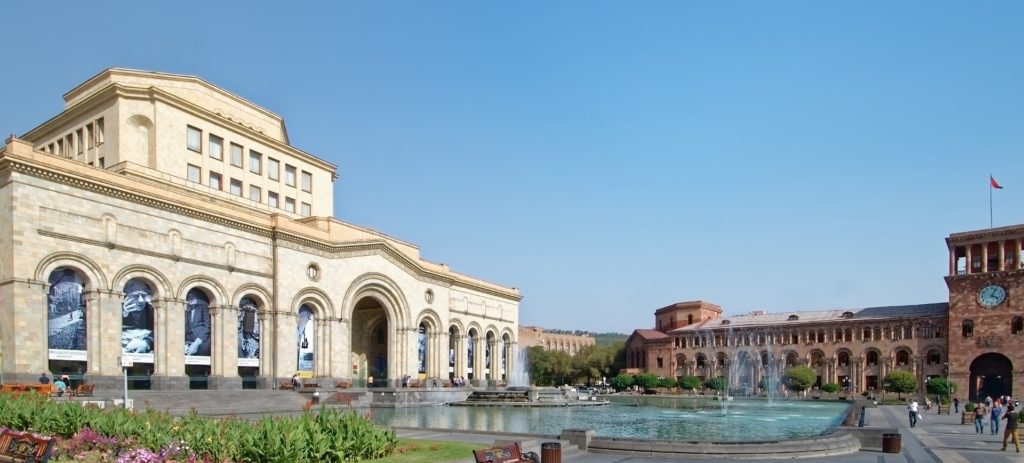YEREVAN
Armenia’s gross domestic product (GDP) shrank 3.3 percent year-on-year in the first quarter of 2021, the National Statistical Committee said, as the impact of the coronavirus pandemic and war over Nagorno-Karabakh dampened prospects of recovery.
The committee said that in nominal terms GDP amounted to 1.284 trillion drams ($2.472 billion) in the first four months of the year.
Though Armenia reported rapid growth in recent years, the ex-Soviet economy has suffered from restrictions aimed at containing the COVID-19 pandemic and a six-week conflict between Azerbaijan and ethnic Armenian forces over the Nagorno-Karabakh region and surrounding territories.
Armenia accepted a Russian-brokered ceasefire to end the bloody conflict which secured territorial gains for Azerbaijan. The country’s economy contracted by 7.6 percent in 2020, mainly reflecting a decline in services and trade.
Despite this decline, some sectors still showed growth in January-March 2021: administrative and related activities recorded an increase of 7.3 percent, healthcare and social services were up 7 percent, construction – 3.8 percent, water supply and sanitation – 3.7 percent, agriculture, forestry and fishing – 1.5 percent.
The government predicts economic growth this year of 3.2 percent, though Finance Minister Atom Janjughazyan said in December that achieving that level of economic growth “would require hard work.”
The country’s Central Bank downgraded its own growth forecast earlier this year to 1.4 percent from 2 percent.
According to the World Bank’s latest projection, Armenia’s economy is expected to grow 3.1 percent in 2021 and 4.5 percent in 2022.
The International Monetary Fund (IMF) said in April it expected Armenia’s economy to expand by around 1 percent in 2021 followed by 3.5 percent growth next year, although the recovery will be protracted.
“The recovery is likely to be protracted. While there is uncertainty about the pace of the recovery, our conservative outlook expects growth of around 1 percent in 2021 and 3.5 percent in 2022,” the IMF said in a statement.
The Fund said that economic recovery should be supported by “immediate policy priorities, including fast-tracking large-scale vaccinations, timely implementation of planned public investment and protecting vulnerable households.”
The IMF added that maintaining strong policies and advancing fiscal and structural reforms in the months ahead will be critical to strengthen confidence and underpin a durable and inclusive recovery.
Armenia issued Eurobonds worth $750 million in February to manage its increased public debt and budget deficit.

